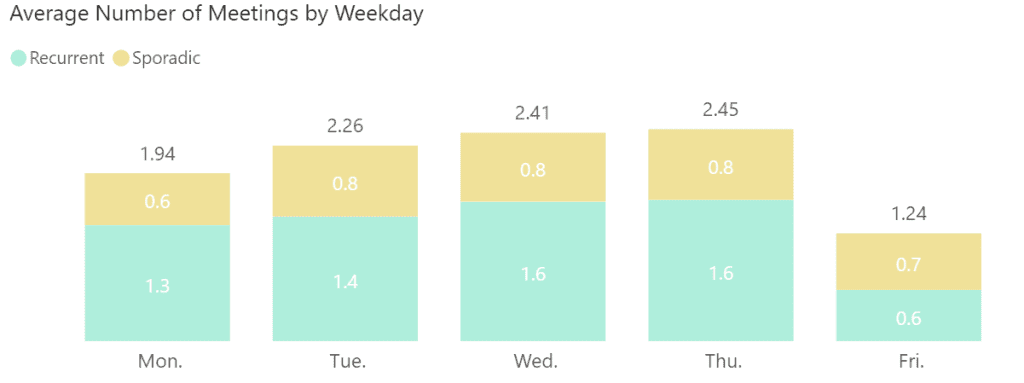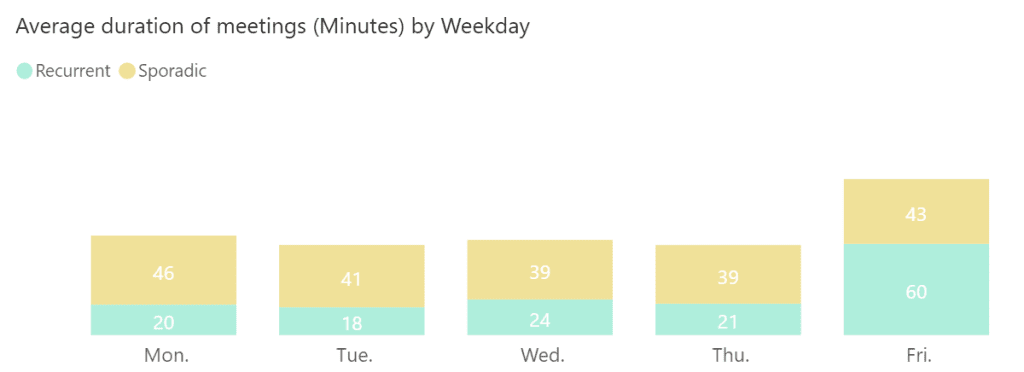Continuing on our journey through the Workforce Intelligence Platform Galeo’s Workforce Intelligence Platform, in this next installment we will discuss the complexities of meetings in successful business relationships. In these relationships, where constant communication and collaboration are essential, meetings become the meeting point where ideas are shared, decisions are made and teams align their efforts towards shared goals. That is why it is crucial to understand the nuances of the meetings. In order to analyze meetings, our Workforce Intelligence Platform divides them into two categories: Sporadic and Recurring. This segmentation is based primarily on the time before the meeting appears on the participants’ calendar, i.e., the time before it is formally scheduled. In addition, our platform collects a wealth of data during meetings, such as duration, number of participants, meeting organizer and other relevant metrics.
Both types of meetings are equally important for any project to run smoothly. While recurring meetings are crucial for decision making and progress monitoring, sporadic meetings allow for agile responses to emerging challenges. When unforeseen technical challenges arise and immediate action is required, sporadic meetings are the solution. On the other hand, recurring meetings provide stability, consistency and a structured space for long-term planning, tracking progress and fostering deeper collaboration.



But how can organizations evaluate and find the right balance between impromptu discussions and structured meetings? What is the optimum point? The truth is that there is no single answer that applies to all situations. Each organization has its own unique culture, influenced by factors such as organizational agility or typical team size. These factors also play a significant role in determining the ideal duration that defines a meeting as sporadic. However, having knowledge is synonymous with having power. Evaluating meeting behavior in your organization can help identify patterns and trends that are caused by collaboration overload or communication gaps. Identifying these issues can lead to better time management and more efficient resource allocation.
But can all meetings be easily classified into the categories of sporadic and recurrent? The reality is that meetings can be diverse and defy strict classification. While the debate continues on the optimal meeting structure and frequency, all organizations are struggling to find the right balance to suit their unique needs and dynamics. Although there is no magic formula, there is a solution: with the Workforce Intelligence Platform from Galeo, you’ll have the tools and knowledge you need to transform meetings from time-consuming hassles into impactful drivers of success.